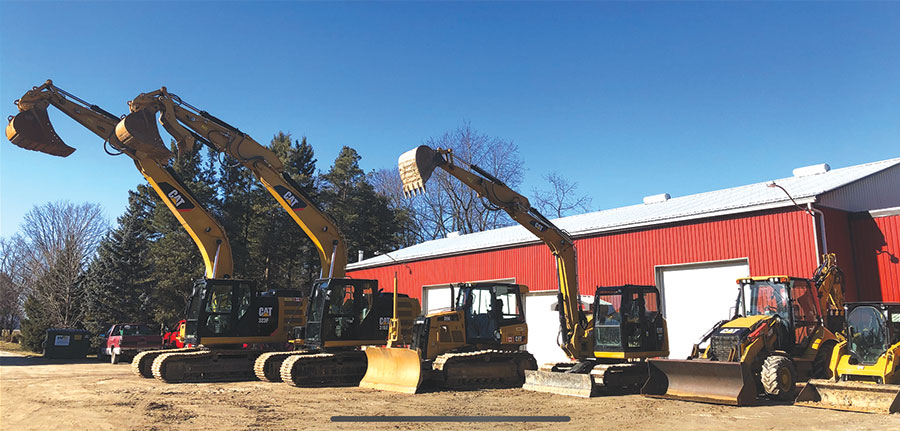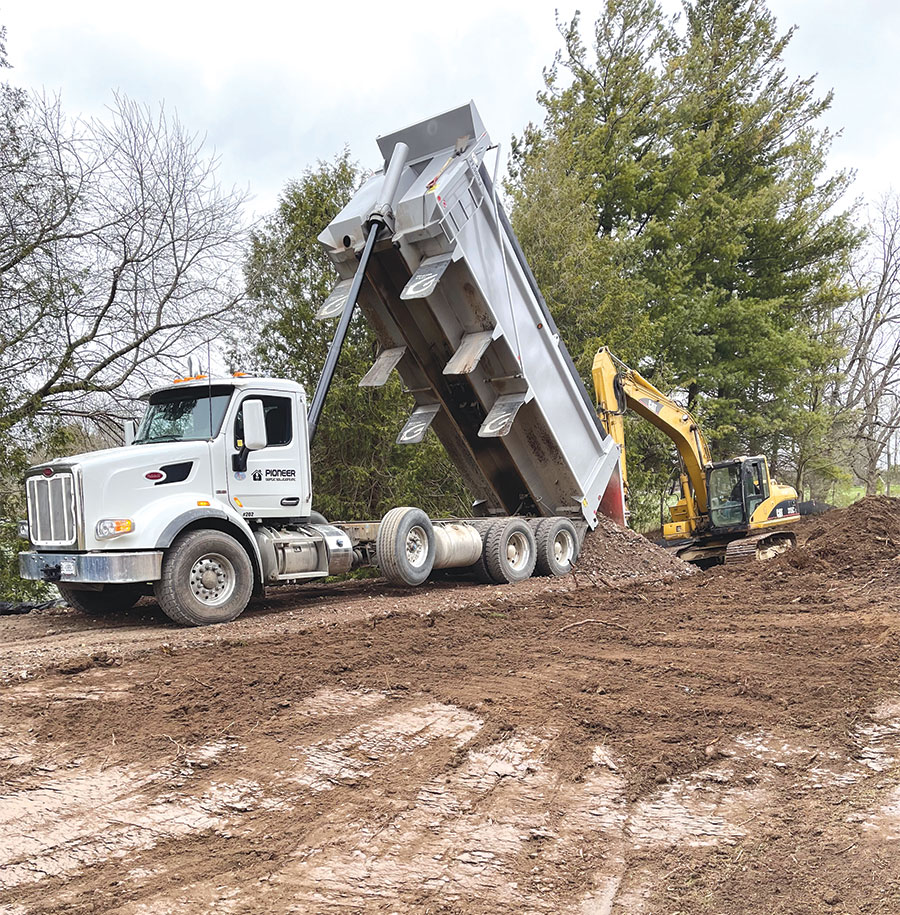If you live with a septic system on your property, your septic system and leaching bed is your family’s personal water treatment facility. The environment you’re impacting is your own, and ultimately the aquifer that surrounds your property.
It’s serious business, and with 30 years installing and maintaining septic systems across Wellington County, Guelph and beyond, Pioneer Septic Solutions have the knowledge and experience to help you take care of the land and water around you.
Whether you are maintaining an existing septic system or installing a brand new one, Pioneer’s team are focused on upholding current industry and government standards for environmental stewardship. Their reputation for professional service is built on their expertise and accountability.
Educating customers is key. Realizing that everything you put down your drain is either going to have a positive impact or a negative one is as simple as remembering this: what goes into the body can go into the septic system. If you can’t digest it, you probably shouldn’t put it down the drain. Being conscious of your cleaning and home care products, as well as toiletries, is important. Harsh chemicals and cleaning agents cannot go back into the aquifer.
As part of the Ontario Building Code, effluent filters are now mandatory in septic systems. The filter prevents solids or suspended particles from entering the septic bed and eventually, the environment. One of the best safeguards for a healthy septic system is the maintenance of the effluent filter. And it’s easy to do yourself. Homeowners can access the effluent filter through the tank’s outlet lid, remove the filter, and hose it down to clear waste and debris. A quick, thorough cleaning every 6 months will ensure your efficiency and help prevent clogs or sewage backups. In fact, using your garden hose to clean the filter can help you remember to do it. Each spring, when you bring the hose out of storage for use, make the filter the first thing you clean. Come autumn, when it’s time to stow the hose in storage, make sure to clean your effluent filter first.
Some homes feature pump tanks. These require routine maintenance too, including the function of the pump itself, but also the high-level alarm that is designed to notify homeowners if the tank is full or the pump isn’t working, for instance, in a power outage. Periodic tests will ensure pump tanks are working efficiently and the alarms are too.
A Tertiary Treatment system is an environmentally friendly unit designed for smaller operations, or as an eco-friendly option for those wanting to do a little extra for their environment. This type of system treats the raw effluent before it transfers to the septic bed, reducing its strength or toxicity to about one tenth. This allows for a smaller septic bed, often reducing the required size by two thirds or more when compared to a conventional system.
A Tertiary system complies with the Effluent Quality Criteria as regulated by the Ontario Building Code. Maintenance of these systems is now being enforced by local municipalities, and the trained team at Pioneer Septic Solutions are certified installers who will ensure the system meets these regulations.
If you are installing an inground pool, or adding a shed or deck to your property, there are minimum separation distances to consider around the leaching or filter beds and the septic tank. Trust Pioneer’s team to offer expert advice to ensure your changes are up to code. Visit oowa.org (Ontario Onsite Wastewater Association) for more information.
It’s not just distance to other buildings to factor into septic systems, it’s what we do atop the flat, green expanse of the leaching bed that can cause serious damage. This levelled area may seem like the ideal space for a backyard rink in winter, or a temporary above-ground pool in summer, but the weight from the water required for these activities and the ground they cover over an extended time directly impacts the soil atop the leaching bed. Rinks and pools on this portion of your property will crush the soil and prevent the natural aeration required to keep your septic system dry. When the rink melts or the pool is drained, the septic bed will flood. It’s important to let the green grass grow and leave that space to do the important work it does for your environment every day.
If an emergency arises with your septic system, you want to be sure you have fast, easy access to it. Pioneer Septic Solutions sell Polylok Risers/Lids, an elevated lid system for the septic tank. The risers are available in 2”, 6” and 12” heights, and 20” or 24” diameters. They are durable, easy to fasten for a water and airtight seal, and maintain their shape while blending into the terrain. The lids can sit at ground or above grade level. Inexpensive to install, it’s a simple solution to locate your tank for fast access for maintenance, repairs or pumping.

Out of sight is no longer out of mind when it comes to your septic system, but that’s a good thing. Working to ensure a healthy environment around your property doesn’t have to be a dirty business. Pioneer Septic Solutions know the best options and proper maintenance for one of the most important utilities for your home and the environment around it.
Owners Kevin and Lisa Dolderman are proud members of the Ontario Onsite Wastewater Association, a provincial not-for-profit association dedicated to promoting the value of onsite and decentralized wastewater management through education, improved practices, and advocacy for policies across the province. For more tips on a healthy septic system, visit oowa.org.
With 30 years of experience, trust the team at Pioneer Septic Solutions to service, install or inspect your septic system with professional and environmentally friendly care to ensure your property and the environment that surrounds it has a healthy future, for your family and for the planet.
For more information visit
www.pioneersepticsolutions.ca
Or call 519-763-3349 to speak to a member of their team.
Hours:
Monday to Friday, from 8am to 5pm.




